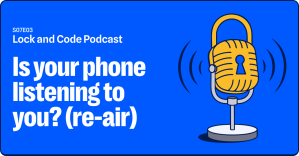The list of people and organizations that are hungry for your location data—collected so routinely and packaged so conveniently that it can easily reveal where you live, where you work, where you shop, pray, eat, and relax—includes many of the usual suspects.
Advertisers, obviously, want to send targeted ads to you and they believe those ads have a better success rate if they’re sent to, say, someone who spends their time at a fast-food drive-through on the way home from the office, as opposed to someone who doesn’t, or someone who’s visited a high-end department store, or someone who, say, vacations regularly at expensive resorts. Hedge funds, interestingly, are also big buyers of location data, constantly seeking a competitive edge in their investments, which might mean understanding whether a fast food chain’s newest locations are getting more foot traffic, or whether a new commercial real estate development is walkable from nearby homes.
But perhaps unexpected on this list is police.
According to a recent investigation from Electronic Frontier Foundation and The Associated Press, a company called Fog Data Science has been gathering Americans’ location data and selling it exclusively to local law enforcement agencies in the United States. Fog Data Science’s tool—a subscription-based platform that charges clients for queries of the company’s database—is called Fog Reveal. And according to Bennett Cyphers, one of the investigators who uncovered Fog Reveal through a series of public record requests, it’s rather powerful.
“What [Fog Data Science] sells is, I would say, like a God view mode for the world… It’s a map and you draw a shape on the map and it will show you every device that was in that area during a specified timeframe.”
Today, on the Lock and Code podcast with host David Ruiz, we speak to Cyphers about how he and his organization uncovered a massive data location broker that seemingly works only with local law enforcement, how that data broker collected Americans’ data in the first place, where this data comes from, and why it is so easy to sell.
Tune in now.
You can also find us on Apple Podcasts, Spotify, and Google Podcasts, plus whatever preferred podcast platform you use.
Show notes and credits:
Intro Music: “Spellbound” by Kevin MacLeod (incompetech.com)
Licensed under Creative Commons: By Attribution 4.0 License
http://creativecommons.org/licenses/by/4.0/
Outro Music: “Good God” by Wowa (unminus.com)
We don’t just report on threats—we remove them
Cybersecurity risks should never spread beyond a headline. Keep threats off your devices by downloading Malwarebytes today.










